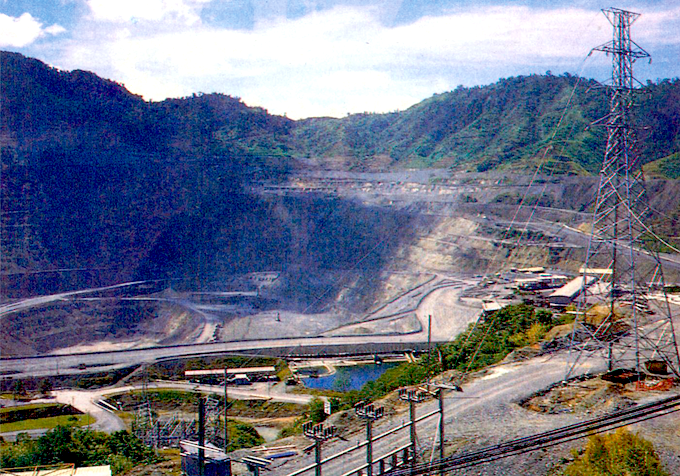COMMENTARY: By Daniel Lindley
As I sit down to write this article, I’m reading another update on the Israeli army killing 27 more starving Palestinian civilians waiting to receive food at a “humanitarian hub”. The death toll at these hubs over the last eight days is now 102.
We’re at the point now that Israel doesn’t even bother putting out the usual statements claiming how Hamas militants were using the civilians as human shields.
They just put out brazen denials that these events even happened, or report that the gunfire was “in response to the threat perceived by IDF troops.” You don’t get much flimsier justifications for massacring civilians than that.
It’s important to remember that these events have only happened because Israel has imposed a total siege on the Gaza Strip since March, blocking all food, fuel and medicine from entering the territory to starve the civilian population.
Meanwhile, Netanyahu has made clear that the only way to end the war is for the civilian population of Gaza to be moved to third countries.
The UN has effectively been banned from operating in Gaza, so the only way Palestinians in Gaza can get food is to go to these “humanitarian hubs” run by the Israeli army, who might just shoot them dead.
Ordinarily, one might expect serious consequences for a state which openly declares that it is attempting ethnic cleansing, massacres civilians seeking food, and then lies about it.
No fundamental change
If we do live in a world governed by “international law” and “human rights”, then that would be natural. But I’m sure everyone reading this article understands that it’s unlikely that anything is going to fundamentally change because of this latest crime.
This gets to the heart of the issue, the real reason why Palestine is so important and takes up so much international attention.
It’s not just that it’s in a strategically important area of the world, or that there are religious holy sites at stake; as important as those things are to know. The real crux of the matter is that Palestine is the central contradiction from which the existing international order unravels.
In 1974, John Pilger produced the film Palestine Is Still The Issue, which educated many Western audiences for the first time that a great injustice inflicted upon an entire nation had been left unresolved for decades.
The post-Second World War order created institutions like the United Nations and the International Court of Justice (ICJ), rendered colonialism an illegal holdover from a previous era and established the principle that it was illegal to acquire territory by war. The film asked the question, how can anyone, especially Western liberals, really say they believe in this new order while also supporting the state of Israel, a polity which appears to reject these ideals in favour of a brute “might equals right” ideal.
In 2002, John Pilger released a new film, also titled Palestine Is Still The Issue.
By 2025, we’re now approaching the end game of the post-Second World War international order, and a big reason for that is Western liberal leaders increasingly having to choose between maintaining it and maintaining their support for Israel, and going for the latter.
To give a recent example, when Israel invaded Syria in December with zero provocation, the UK government’s response was simply to state that Israel “is making sure its position in the Golan is secure”.
Bear in mind that the Golan is also Syrian territory; the UK government is explicitly endorsing an act of aggression to protect illegally occupied land. It makes little sense unless you think international law doesn’t apply to Israel.
A blind eye to Israel’s war crimes
But the problem with that kind of thinking is that international law doesn’t work unless there’s a collective agreement to respect it. There isn’t a world police force that can enforce these laws, they’re just a mutually agreed set of rules that everyone agrees to work within, as history has taught us that it ends badly for everyone if we don’t.
To make a rough analogy, the system is like the early days of the UFC (Ultimate Fighting Championship) when there were very few enforced rules, but in reality, fighters had handshake agreements not to, e.g. pull each other’s hair out, because nobody wants that happening.
If Fighter A were to start pulling the opponent’s hair out, can he act outraged when other fighters start doing it as well?
Likewise, if the Western powers decide to support Israel in illegally occupying other countries’ territories for decades, can they really act outraged when Russia decides it’s going to occupy part of Ukraine?
By allowing Israel to acquire territory by war, what they’ve essentially done is change the international system from one where acquiring territory by war is simply illegal, to one where acquiring territory by war is ok so long as you say it’s in your national security interests.
Those are the new rules.
Last year, the International Criminal Court (ICC) issued arrest warrants for Israeli Prime Minister Benjamin Netanyahu and Defence Minister Yoav Gallant for war crimes.
International consensus
Specifically, to answer allegations that they committed “the war crime of starvation as a method of warfare”. After the Nazi atrocities in the Second World War such as the Siege of Leningrad (not strictly “illegal” at the time), there emerged an international consensus that such inhumane actions must never happen again.
Well, on March 2, Israel announced that it was banning the entry of all goods and aid into Gaza, a blatant war crime. Meanwhile, Western governments such as Germany openly state that they intend to find “ways and means” to avoid having to arrest Netanyahu if he were to enter their territory.
The UK, in particular, continues to provide direct military assistance to Israel in the form of surveillance flights over Gaza. Declassified UK has documented at least 518 RAF surveillance flights around Gaza since December 2023, carried out from the Akrotiri airbase in Cyprus.
The UK government is, of course, aware that it’s assisting a government whose leaders are wanted by the ICC for war crimes. This would explain why when Keir Starmer visited the airbase in December, he gave a strange speech saying, “I recognise it’s been a really important, busy, busy year . . .
“I’m also aware that some or quite a bit of what goes on here can’t necessarily be talked about . . . Although we’re really proud of what you’re doing, we can’t necessarily tell the world what you’re doing here.”
The UK is legally obligated under the Geneva Conventions to ensure its military intelligence is not used to facilitate war crimes. In fact, the UK government has stated itself that Israel is “not committed” to following international law, but says it must continue providing military assistance to Israel as to stop doing so “would undermine US confidence in the UK and NATO at a critical juncture in our collective history and set back relations”.
If the post-Secind World War international order had any ideology affixed to it, it’s the belief in concepts such as individual freedoms, human rights, international humanitarian law and the legitimacy of institutions established to enforce them.
Every order needs some kind of organising principle; it might not strictly be “true”, but the real purpose is that the population needs to believe in it.
Many young adults in countries like the USA and UK were brought up with the ideals that waging war for cold national interests/enforcing racial supremacy were barbaric practices that were no longer permitted.
Palestine is the final frontier
For Palestine, though, there is no longer any window dressing that can be done. Netanyahu is now making it explicit that even if Hamas were to “lay down its weapons” and its leaders leave, Israel will then ethnically cleanse the Palestinian civilian population of Gaza.
This is a war of ethnic cleansing and genocide rationalised by a militaristic, racist ideology — the fundamental reason, after all, why the Palestinians of Gaza are being ethnically cleansed is that they are not Jewish.
Israel’s supporters in the West have abandoned trying to convince anyone of the morality of their positions and are just resorting to repression of dissent. In the United States, for example, we’ve seen unprecedented crackdowns on solidarity groups.
For example, international students are being deported simply for attending Palestine solidarity demonstrations. These people aren’t even being accused of committing crimes, but of undefined offences such as “un-American activity.” If unconditional Western support for Israel is to continue, more repression at universities is going to be necessary.
The UK government was correct in saying we’re at “a critical juncture in our collective history” and that Israel is at the heart of it. The international order is unravelling, and whatever new order we move into is largely dependent on what happens in Palestine.
If Israel succeeds in its long-term goal of genocide against the Palestinians and establishes a lawless militarised ethnostate that grants/strips citizenship on racial grounds and invades and occupies other countries at will, that will be the model the rest of the world will follow. Even if you don’t particularly care about Palestine personally, you will not escape the consequences of this new might equals right world.
Anyone who doesn’t wish to live in such a world must recognise that Palestine solidarity is the central issue which cannot be abandoned.
Israel and its supporters certainly recognise this, or else they wouldn’t be so willing to forsake any other purported principle when Israel is at stake.
Although the levels of repression at the moment can be dismaying, we should also take heart in the fact that if Israel’s supporters were feeling secure in their ultimate victory, they wouldn’t be behaving so aggressively.
We’re witnessing the destructive rampage of a fragile project, whose designers fear could collapse at any moment should opposition manage to organise themselves effectively.
Daniel Lindley is a writer, socialist and trade union activist in the UK. This article was first published by The New Arab and is republished under Creative Commons.
This post was originally published on Asia Pacific Report.

 (@LetsStopC9)
(@LetsStopC9) 



 Breaking
Breaking 






